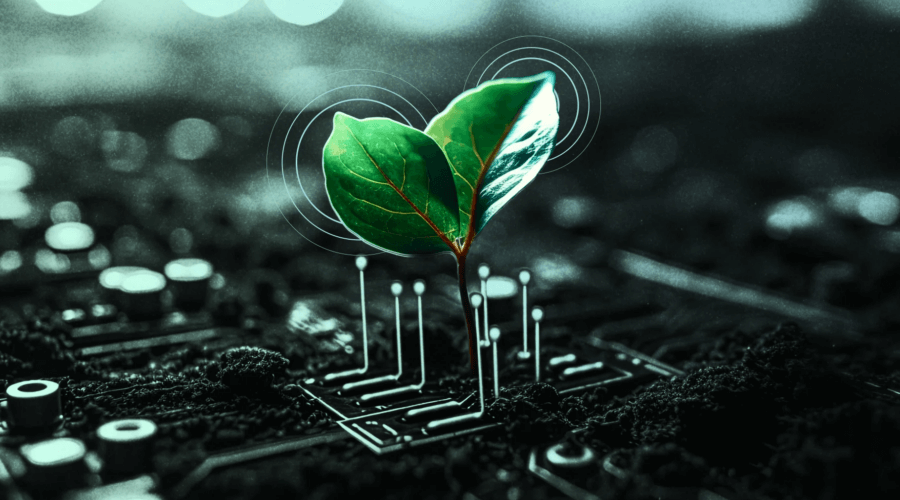Technology has always been the driving force behind human progress, and as we move deeper into 2025, the speed of change is staggering. From artificial intelligence to biotechnology, emerging technologies are transforming industries, economies, and the way we live. These future innovations are more than buzzwords—they’re redefining the foundations of business, healthcare, education, and entertainment.
In this post, we’ll explore the top 10 tech trends shaping the future. Each one offers incredible opportunities for investors, entrepreneurs, and everyday users ready to embrace the next digital revolution.
1. Artificial Intelligence and Machine Learning
Artificial intelligence (AI) continues to dominate discussions about emerging technologies. Once limited to research labs, AI now powers everything from customer service chatbots to complex data analytics. Machine learning algorithms help companies like OpenAI and Google DeepMind develop systems capable of reasoning, problem-solving, and even creativity.
In 2025, AI has moved far beyond automation—it’s now augmenting human decision-making. For example, businesses use IBM Watson for predictive analysis, while healthcare providers deploy AI-driven diagnostics to detect diseases earlier and with higher accuracy.
For those interested in business applications, see our related post on AI Tools for Entrepreneurs.
Pro Tip: The key to leveraging AI in 2025 lies in combining automation with human creativity. The most successful companies use AI to enhance—not replace—human talent.
2. Quantum Computing
Quantum computing is revolutionizing how data is processed. Unlike traditional computers, which use bits (0s and 1s), quantum systems use qubits, allowing them to perform calculations at unimaginable speeds. This breakthrough technology can solve problems that would take classical computers thousands of years.
Leaders like IBM, Google Quantum AI, and Intel are racing to make quantum computing accessible for businesses. Applications include secure communication, climate modeling, and drug discovery.
To explore this in depth, read our article on Quantum Computing: The Next Big Shift for Businesses.
Pro Tip: Quantum computing is still in its infancy but will soon impact every industry, from banking to biotechnology. Early adopters stand to gain the most.
3. Extended Reality (XR): Merging the Digital and Physical Worlds
Extended Reality, or XR—an umbrella term for VR (Virtual Reality), AR (Augmented Reality), and MR (Mixed Reality)—is transforming how we interact with digital environments. These future innovations are already revolutionizing education, healthcare, and entertainment.
Companies like Meta (formerly Facebook) and Microsoft HoloLens are developing advanced XR devices for immersive communication and training. In retail, brands use AR to allow customers to “try on” clothes virtually or preview furniture in their homes before purchasing.
Pro Tip: The global XR market is projected to surpass $250 billion by 2030. Entrepreneurs investing in XR-based solutions today are positioning themselves at the heart of a digital transformation wave.
4. Blockchain Beyond Cryptocurrency
When people think of blockchain, they often associate it with Bitcoin. But in 2025, the technology’s potential goes far beyond cryptocurrency. Blockchain now powers secure identity management, transparent supply chains, and decentralized finance (DeFi).
Organizations like IBM Blockchain and ConsenSys are using blockchain to enhance trust and transparency in industries from logistics to healthcare. Even governments are adopting blockchain-based systems for voting and data security.
To see how blockchain affects modern living, check out Travel the World with Crypto.
Pro Tip: The biggest value of blockchain lies in trust. It eliminates intermediaries and makes transactions more secure, faster, and cost-effective.
5. Biotechnology and Genetic Engineering
Biotechnology is one of the most promising emerging technologies driving change in healthcare and agriculture. Innovations like CRISPR and genetic sequencing are paving the way for personalized medicine and disease prevention.
Companies such as Moderna and CRISPR Therapeutics are leading this revolution. They’re developing gene-editing therapies that could one day eliminate hereditary diseases altogether.
Beyond healthcare, biotechnology is improving food production and sustainability. For instance, lab-grown meat startups like Eat Just are redefining the future of sustainable protein sources.
Pro Tip: Biotechnology isn’t just about science—it’s about solving humanity’s biggest problems, from food scarcity to climate change.
6. Internet of Things (IoT) and Smart Ecosystems
The Internet of Things (IoT) continues to connect the digital and physical worlds. From smart homes to industrial automation, IoT enables devices to communicate seamlessly, improving convenience and efficiency.
Devices from Google Nest and Amazon Alexa now control everything from lighting to security. Meanwhile, smart cities use IoT sensors to manage traffic, energy, and public services efficiently.
To understand automation in sustainability, read our related article on How to Create a Fully Automated Smart Garden.
Pro Tip: The global IoT market is projected to exceed $1.5 trillion by 2030. Businesses that adopt IoT early will dominate their respective industries.
7. Renewable Energy and Clean Tech
As the world faces mounting environmental challenges, renewable energy is one of the most impactful tech trends. Innovations in solar, wind, and hydrogen technologies are driving the shift toward carbon neutrality.
Companies like Tesla Energy and Vestas are at the forefront of developing efficient renewable systems. Additionally, advancements in energy storage—such as solid-state batteries—are making clean power more accessible and reliable.
Pro Tip: Investing in renewable energy is not only eco-conscious but also profitable. The global clean energy sector is expected to grow by over 30% annually this decade.
8. Autonomous Transportation
From self-driving cars to autonomous drones, the transportation industry is undergoing massive transformation. Companies like Tesla, Waymo, and Uber ATG are investing heavily in autonomous technology.
These future innovations promise safer, faster, and more efficient travel. Beyond vehicles, automated delivery drones and freight systems are optimizing logistics and reducing emissions.
Pro Tip: The key challenge remains regulation and safety. As governments adopt standards, autonomous transportation will become an everyday reality.
9. Space Technology and Exploration
Humanity’s interest in space is stronger than ever. Thanks to private space companies, the space race has entered a new commercial era. Firms like SpaceX, Blue Origin, and NASA are pushing boundaries with reusable rockets, lunar bases, and plans for Mars colonization.
Beyond exploration, space tech has practical applications on Earth—satellite internet, global communication, and weather monitoring are improving lives globally.
Pro Tip: The global space economy is expected to reach $1 trillion by 2040. Investing in satellite tech and aerospace innovation could yield huge returns.
10. Human-AI Collaboration and Ethical Tech
As technology evolves, ethical concerns are becoming central to innovation. The future of tech depends on how we manage human-AI collaboration, data privacy, and algorithmic transparency.
Organizations like Google AI Ethics and Partnership on AI are setting guidelines to ensure fairness, inclusivity, and accountability in AI systems. Meanwhile, companies are investing in explainable AI (XAI) to make algorithms more understandable to users.
Pro Tip: Ethical AI is the next frontier. Businesses that prioritize transparency will gain customer trust and long-term sustainability.
Final Thoughts: The Future Is Already Here
The future isn’t coming—it’s already unfolding. These emerging technologies are shaping everything from how we communicate to how we survive as a species. Whether through clean energy, space travel, or human-AI collaboration, these future innovations will define the next era of progress.
As these tech trends evolve, adaptability will be key. For investors, entrepreneurs, and professionals alike, the message is clear: embrace innovation, stay informed, and prepare for a world where technology continues to redefine what’s possible.




